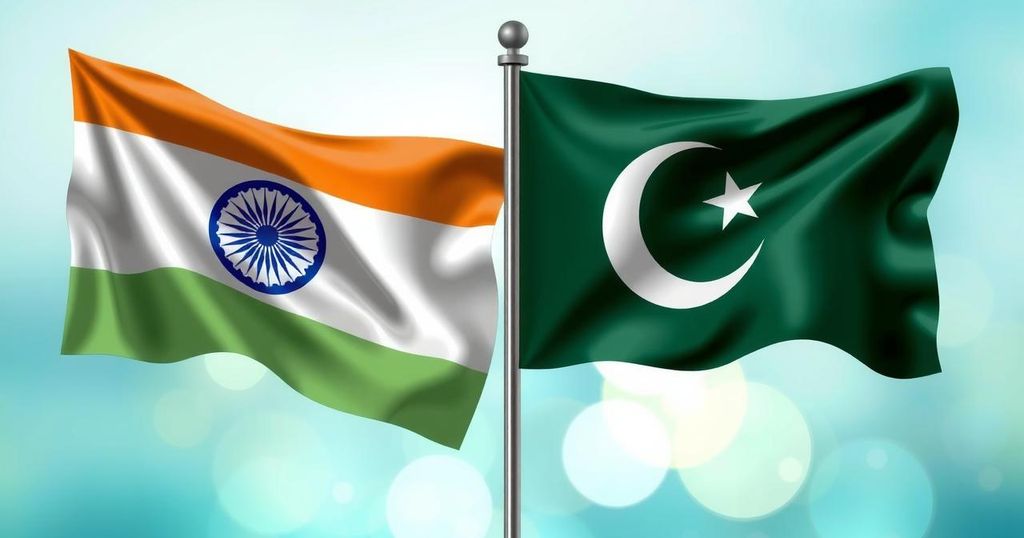Global news
AFRICA, ASIA, BURKINA FASO, CENTRAL ASIA, CHINA, FOREIGN POLICY, INDIA, INDO - PACIFIC, INTERNATIONAL RELATIONS, KAPUR, MARCO RUBIO, MEXICO, NATIONAL SECURITY, NORTH AMERICA, PA, PAHALGAM, PAKISTAN, RUB, RUBIO, SCHOOL, SENATE, SENATE FOREIGN RELATIONS COMMITTEE, SOUTH, TRUMP, U. S, U. S. NAVAL POSTGRADUATE SCHOOL, UNITED STATES, WASHINGTON
Marcus Li
0 Comments
Vance, Rubio Played Key Roles in India-Pakistan Deescalation: Trump Nominee
During a Senate hearing, Paul Kapur, Trump’s nominee for Assistant Secretary of State, emphasized the contributions of Vice President J.D. Vance and Secretary of State Marco Rubio in de-escalating tensions between India and Pakistan. He highlighted the importance of U.S.-India relations and outlined plans for addressing broader regional issues and enhancing cooperation with neighboring countries against China’s influence.
In a recent Senate confirmation hearing, Paul Kapur, nominated by President Trump for Assistant Secretary of State for South and Central Asia, highlighted the pivotal roles that U.S. Vice President J.D. Vance and Secretary of State Marco Rubio played in de-escalating the tensions between India and Pakistan. He described their involvement as vital in encouraging restraint during the latest crisis following a terrorist attack attributed to Pakistan. “The Secretary [of State] and the Vice President were actively engaged… to encourage de-escalation,” Kapur noted before the Senate Foreign Relations Committee.
Addressing the backdrop of heightened tensions between the two nuclear-armed nations, Mr. Kapur, a professor at the U.S. Naval Postgraduate School, indicated that the situation was linked to a recent deadly attack in Pahalgam, which has been attributed to groups operating from Pakistan. As discussions progressed, Senator Chris Van Hollen mentioned he had discussions with both Indian and Pakistani parliamentary delegations earlier in Washington, reflecting ongoing dialogue in the region.
The ongoing crisis has led to a precarious ceasefire situation. “President Trump and Secretary Rubio have taken credit for bringing about the ceasefire. The Indian government, however, has denied that American mediation played a role in this,” Van Hollen pointed out. He then asked, “What broad set of issues will you push India and Pakistan to discuss?”
In response, Mr. Kapur spoke about the shared interests between the U.S. and India, emphasizing the importance of a free and open Indo-Pacific, enhancing bilateral trade, and establishing equitable economic relationships. “I’ll work to further advance U.S.-India relations and put our partnership on course to realize its tremendous promise,” he stated, illustrating his commitment to strengthening diplomatic ties.
He also expressed intentions to collaborate with Pakistan on security while promoting trade opportunities, ensuring that efforts align with U.S. interests. “South Asia recently avoided a costly conflict, with Vice-President Vance and Secretary Rubio intensely engaged on the issue,” he mentioned, reinforcing the administration’s focus on peace and stability in the region.
Kapur also elaborated on the significance of other nations in the Indo-Pacific, including Sri Lanka, Bangladesh, Nepal, Maldives, and Bhutan. He underscored their strategic importance in counterbalancing China’s influence and enhancing U.S. cooperation in the region. The Chairman of the Senate Foreign Relations Committee, Senator James E. Risch, echoed concerns over the tensions, stating, “The recent conflict between India and Pakistan is deeply concerning… we need peace between them.”
Kapur’s remarks point to a broader vision for U.S. engagement in South and Central Asia, focusing on regional stability, counterterrorism efforts, and fostering constructive dialogue among nations.
Paul Kapur’s confirmation hearing revealed the significant diplomatic efforts of U.S. leaders in de-escalating the India-Pakistan crisis. He highlighted the necessity of continued collaboration, not just between these two nations, but also involving other regional players. Promoting peace, economic partnerships, and addressing security concerns remain pivotal as he aims to strengthen U.S. relations throughout South Asia. Overall, Kapur’s vision reflects a strategic approach to navigate the complex landscape of South and Central Asia, showcasing the U.S. commitment to fostering stability and cooperation in this critical region.
Original Source: www.thehindu.com




Post Comment